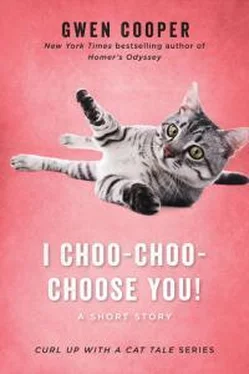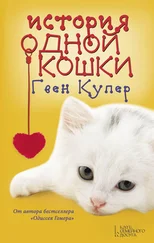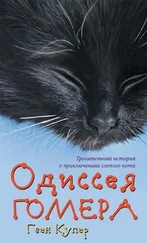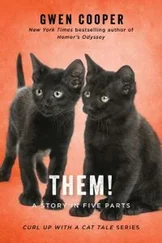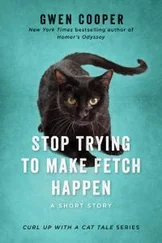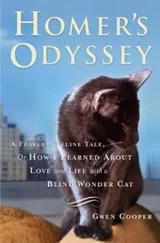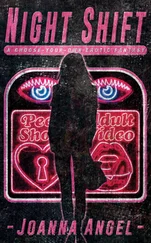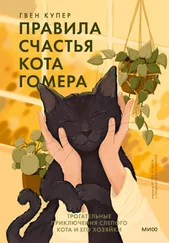I Choo-Choo-Choose You!
Gwen Cooper
BenBella Books, Inc.
Dallas, TX
Copyright © 2018 by Gwen Cooper
All rights reserved. No part of this book may be used or reproduced in any manner whatsoever without written permission except in the case of brief quotations embodied in critical articles or reviews.
BenBella Books, Inc.
10440 N. Central Expressway, Suite 800
Dallas, TX 75231
www.benbellabooks.com
Send feedback to feedback@benbellabooks.com
e-ISBN: 978-1-946885-83-8
Distributed to the trade by Two Rivers Distribution, an Ingram brand www.tworiversdistribution.com
I Choo-Choo-Choose You!
Pandora (“Pandy” for short) was a purebred Siamese and could only be described—although this phrase wasn’t in common use twenty years ago—as a hot mess.
Some of her problems were obvious even to a casual observer. For one thing, Pandy was morbidly obese. She had all of a Siamese cat’s fine-boned delicacy of frame from the shoulders up and the hips down. But her midsection carried an excess seventeen pounds of pure lard. The tiny, porcelain-doll perfection of her head and neck made for a jarring contrast with the enormous belly—ballooning out on each side of her body—that swayed ponderously as she walked. Watching Pandy stroll about the house always made me think of a song popular on Miami dance radio at the time, which admonished, Shake it . . . don’t break it . . .
I loved Pandy dearly, but I was probably the only one who did, aside from Maggie, my boyfriend Jorge’s mother. She didn’t do a very good job of keeping her hindquarters clean, bless her heart. (Pandy, that is—not Jorge’s mother.) Whether this was because her girth hampered her ability to reach around and get in there , or because Pandy had given up in some fundamental way, was unclear. But every upward flick of her tail revealed an incriminating brown ring, as permanently fixed as if it were tattooed to her fur, no matter how often or assiduously Maggie tackled Pandy with the Baby Wipes.
Pandy would unerringly zero in on the visitors and houseguests who were the least interested in cats, and when—after she’d repeatedly pawed at their legs for attention—the hapless visitors would finally relent and try to pet her, she would lash out violently, leaving confusion, claw marks, and little tufts of yellow Siamese fur in her wake as she fled for refuge under Jorge’s parents’ bed. And woe betide the unsuspecting cat lover who attempted a friendly scritch behind Pandy’s ears and ended up pulling back a bloodied hand for their trouble.
At seven years old, Pandy still suckled daily at the long-dry teats of her mother, Persephone (aka “Persy”), from whom she’d never been separated a day in her life. This, according to Maggie, was the true source of what was alternately referred to as “Pandy’s quirks,” “Pandy’s problems,” or, perhaps most accurately, “Pandy’s neuroses.”
“Cats aren’t supposed to live with their mothers their whole lives,” Maggie would say. And then she’d add, “Nobody is, really.”
In human years, Pandy would have been somewhere in her mid-forties. I thought about Grey Gardens and The Glass Menagerie, and the entire literary pantheon of bitter or dotty middle-aged spinsters who’d never left their parents’ homes—and then I tried to imagine what I might be like if I were still living with my own mother when I was in my forties.
“Definitely not,” I’d agree, with a shudder.
I was twenty-three and had just moved in with Jorge, my first serious relationship post-college. We were living in a small one-bedroom apartment in a two-story low-rise owned by one of Jorge’s uncles, nestled deep in the warren-like side streets of Miami’s Little Havana. The people living all around us had emigrated from the mountains of Cuba, and they kept chickens in the postage-stamp backyards of their tiny, ranch-style homes. It was an odd (and often irritating) thing to be living in Miami in the 1990s—among bustling traffic and construction and silvery skyscrapers gleaming on the horizon—yet wake up at five thirty every morning to the sound of roosters crowing twenty yards away.
My own family were also “animal people.” My father liked to spend time at the stables where Miami’s mounted police kept their horses, and the puppies we adopted came from these animal-loving officers, inevitably with some heart-rending back story: Misty, a petite German shepherd/whippet cross, had been thrown from a moving car on I-95; Casey, a yellow pit bull/Lab mutt, had been used as bait in a dog-fighting ring. And so on.
We made much of these dogs, conspicuous even in a neighborhood of pampered, pedigreed pooches as a family who “spoiled their dogs rotten.” Often we came home to find that one or another of our neighbors’ dogs had escaped from his own yard and was camped out on our front porch. We would joke that the neighborhood dogs must have some kind of communications network, a way of telling each other that while they all might be treated well, at the Coopers’ a dog lived like a king! We laughed about it, but I do think we were always trying—with years of love and slavish attention—to make up for those early traumas our dogs had suffered.
I’d always imagined that I would get a dog of my own when I finally moved into my first “grown-up” apartment. But the place Jorge and I shared was very small, without so much as a proper patch of grass for a dog to run and play on—and, as young adults striving to build our careers, the hours Jorge and I worked were long. I was running a youth outreach program that promoted community volunteering among middle- and high-school students. Jorge was a production assistant on commercial video shoots. When we weren’t working, we were often at after-hours networking functions, trying to make the connections that would give us the next leg up. Nothing in our lifestyles seemed conducive to canine guardianship.
Still, as far as I was concerned, a home wasn’t a home at all if there weren’t any animals living in it.
The highlight of my week was always Sunday, when we’d go out to brunch with Jorge’s parents and then back to their house to while away the afternoon until Sunday dinner. It was a joy to spend time with Pandy and Persy and Olympia—a slender, auburn-hued Abyssinian—along with the family dog, a coal-black pit bull named Targa. Targa was more utterly gaga over humans than any dog I’ve known before or since. In fact, Jorge’s parents’ house had been robbed three times (such was Miami in the ’80s and early ’90s) while Targa was in it—and, according to the one intruder the police had eventually caught, Targa had done little to foil the burglars beyond licking them ecstatically and bringing over her toys.
Targa may have loved people, but she hated all three cats with a deep and murderous hatred. I never witnessed any of it firsthand, but I heard stories of close calls and surprise attacks that very nearly ended in bloodshed. Jorge’s parents never left Targa and the cats together unsupervised when they were out, and even when they were home they always kept Targa’s muzzle close at hand.
The feeling was more than mutual. The cats delighted in finding little ways to goad Targa when they thought no one was looking. Pandy, in particular, would take malicious glee in peeing on Targa’s dog bed the moment Targa left it unattended to play in the backyard.
As I said, many of Pandy’s problems in life were apparent at a first glance. That Pandy was a menace to new people, however—or even to people she already knew; Jorge, his father, and his sisters bore their share of Pandy-inflicted war wounds—was something I didn’t know initially. I didn’t find out for months, until Maggie confided it to me one afternoon in a kind of shocked undertone, upon finding a blissed-out Pandy, purring and unconscious, draped across my legs. By that point, Pandy and I were already deep into the early stages of our four-year love affair.
Читать дальше
